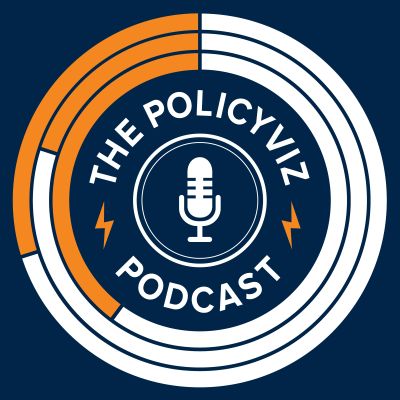Jon Schwabish | Economist, Data Visualization, and Presentation Specialist
https://policyviz.com/podcast/
Tracing the Narrative: The Art of Autographic Design in Data Analysis with Dietmar Offenhuber
In this week’s episode, I chat with Dietmar Offenhuber about his new book, Autographic Design and the concept of autographic data analysis. Dietmar stresses the significance of recognizing the material origins of data and the influence of extraneous variables. He advocates for a qualitative approach that pays attention to data traces, which can uncover deeper narratives. In our conversation, we explore what is meant by autographic design and urge a wider lens on data to grasp multifaceted problems thoroughly. Additionally, Dietmar’s work underscores the interplay between qualitative and quantitative methods, emphasizing the role of subtlety and conjecture in data interpretation to bring a more nuanced understanding of the stories behind the numbers.
Topics Discussed- The Material Context of Data Collection. We dive into why understanding where and how data is collected is paramount for accurate analysis. We talk through a number of examples in Dietmar’s work and book.
- The Impact of the Third Variable. We explore how the introduction of a third variable can dramatically shift the interpretation of data and data visualizations. We discuss the importance of being vigilant for these variables to avoid erroneous assumptions.
- Unintentional Digital Traces. Our conversation uncovers the value of unintentional digital traces that we leave behind and how they can be a gold mine for analysts.
- Qualitative Meets Quantitative. We discuss the need for blending qualitative insights with quantitative research and how they can complement each other to provide a fuller picture of analysis.
- The Speculative Nature of Data Analysis. We address the inherently speculative aspect of data analysis, highlighting the fact that, despite the numbers, much of what analysts do involves informed guesswork.
- A Call for Collaboration. The discussion opens the floor for collaborative efforts, emphasizing that the best results often come from pooling knowledge and expertise across different fields.
➡️ Check out more links, notes, transcript, and more at the PolicyViz website.
Sponsor: Maryland Institute College of ArtThe Maryland Institute College of Art (MICA) application deadlines for summer and fall are April 22 and August 1. Spots are limited, so start your application now and talk to an enrollment coach by filling out our form at online.mica.edu/dav/.
